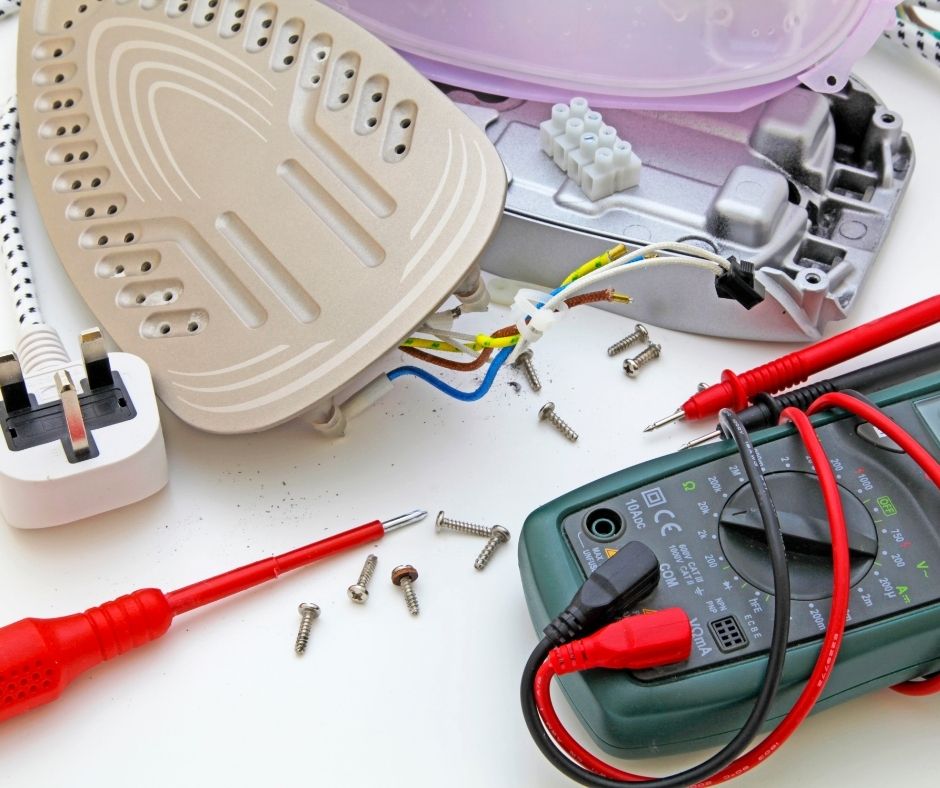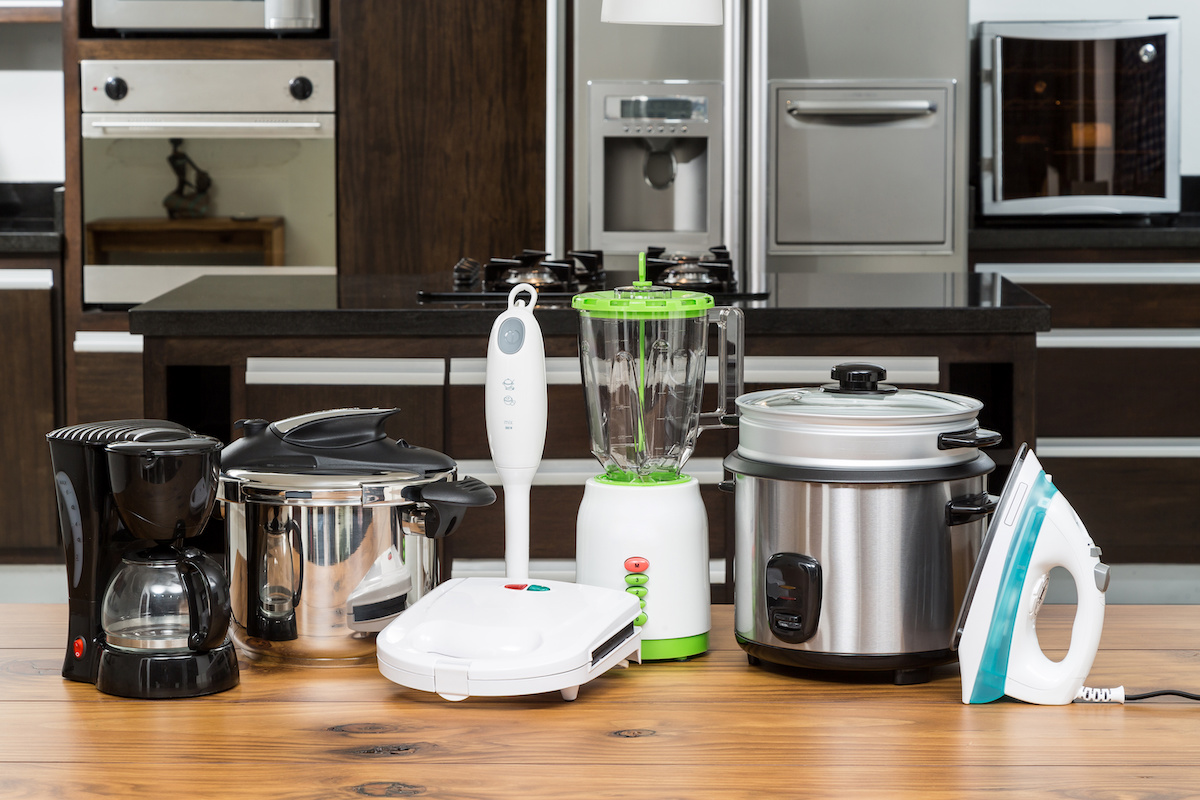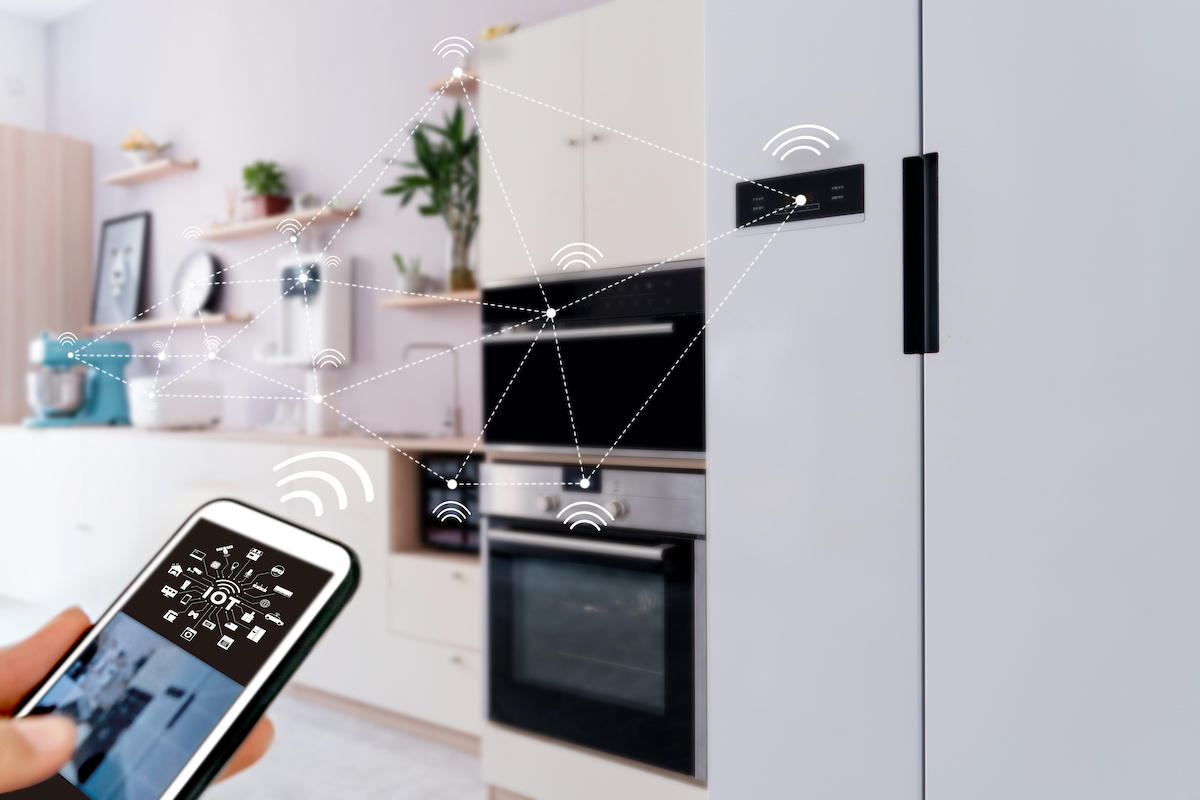
The New Age of Appliance Technology
In today’s fast-paced world, technology is evolving at an unprecedented rate, infiltrating every facet of our lives. From communication to transportation, from healthcare to entertainment, technology’s transformative power is undeniable. One area where this evolution is particularly remarkable is in the realm of household appliances.
These once-static tools of convenience have undergone a remarkable transformation, ushering in a new age of appliance technology that is reshaping the way we interact with our homes and daily routines.
Smart Appliances: Transforming the Home Environment
Imagine a refrigerator that can compile a shopping list based on its contents, or an oven that preheats itself before you even step into the kitchen. These scenarios are no longer the stuff of science fiction – they are the reality of smart appliances.
Smart appliances are equipped with internet connectivity and advanced sensors, enabling them to communicate with other devices and adapt to user preferences. From smart refrigerators that can display recipes, track expiration dates, and even place grocery orders, to washing machines that can be controlled remotely via smartphone apps, these appliances are changing the way we interact with our living spaces.
The benefits of smart appliances extend beyond mere convenience. They can:
- Significantly enhance efficiency
- Help reduce energy consumption
For instance, a smart thermostat can learn your heating and cooling preferences over time, adjusting the temperature accordingly to optimize energy usage.
Moreover, smart appliances can be integrated into the Internet of Things (IoT) ecosystem, allowing them to interact with each other seamlessly. Imagine a scenario where your smart fridge communicates with your smart oven to ensure that dinner is ready precisely when you walk through the door – it’s a level of synchronization that was unimaginable just a few years ago.
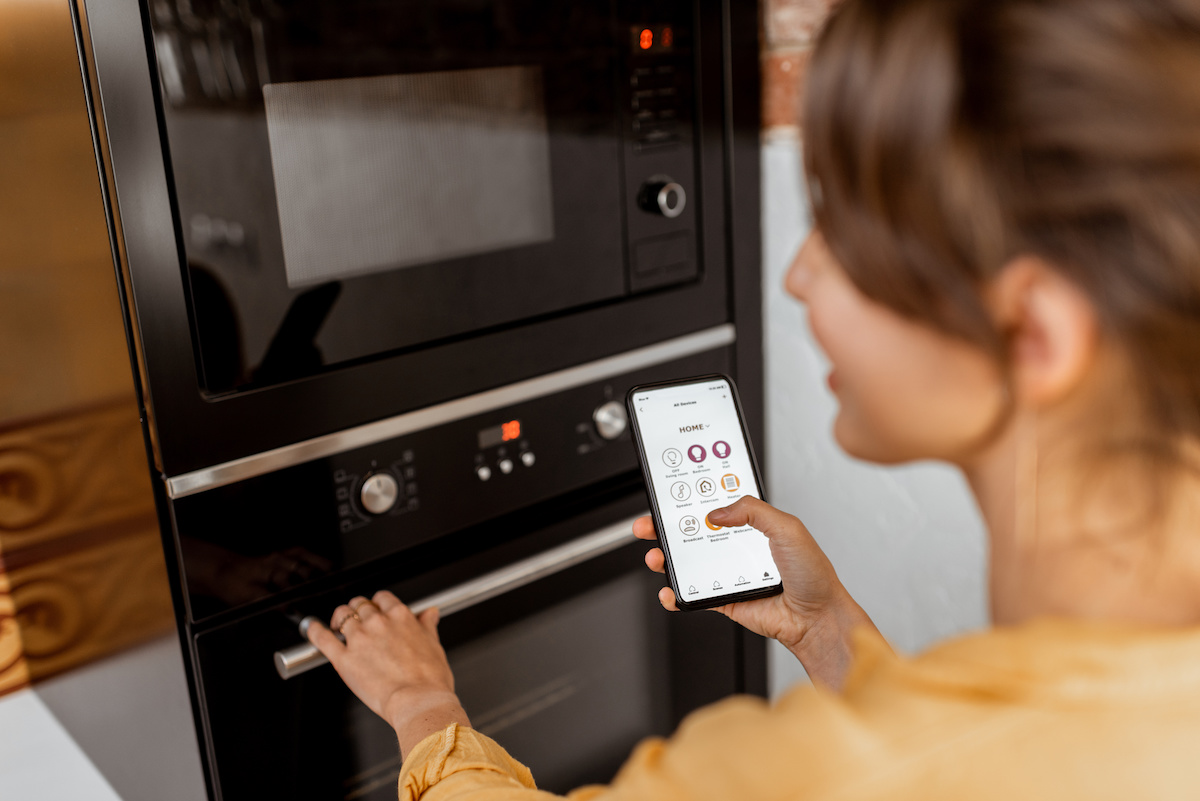
Automation and AI: Enhancing Appliance Functionality
Automation and Artificial Intelligence (AI) are two of the driving forces behind the rapid advancement of appliance technology.
- Automation involves the use of machines to perform tasks with minimal human intervention.
- AI takes it a step further, enabling machines to learn from data and adapt their behavior based on patterns and interactions.
The appliance landscape is now populated with robotic vacuum cleaners that navigate autonomously, voice-controlled assistants that manage your shopping list and calendar, and even refrigerators that can warn you when you’re running low on groceries.
One remarkable example of AI-driven appliances is the robotic vacuum cleaner. These devices are equipped with sensors and AI algorithms that enable them to map your home, avoid obstacles, and clean your floors efficiently. Over time, they learn the layout of your space, optimizing their routes to ensure a thorough cleaning.
Similarly, voice-controlled appliances leverage AI to understand and process natural language, making it possible to control various functions of your home with simple voice commands. This level of automation and AI integration not only enhances convenience but also provides a glimpse into a future where appliances become true household companions, anticipating and adapting to our needs.
Energy Efficiency and Sustainability in Appliance Design
As concerns about energy consumption and environmental impact grow, appliance manufacturers are placing a greater emphasis on energy efficiency and sustainability in their designs. Energy-efficient appliances not only reduce electricity bills but also contribute to overall sustainability efforts. Innovations in this realm include appliances with:
- Improved insulation
- Better sealing mechanisms
- Advanced cooling systems that minimize energy wastage
Furthermore, the integration of renewable energy sources, such as solar panels powering household appliances, represents a significant step toward greener living.
The impact of energy-efficient appliances is two-fold: it not only benefits individual consumers but also has a broader positive effect on the environment.
As more consumers opt for appliances with lower energy consumption, the collective reduction in energy demand can contribute to the reduction of greenhouse gas emissions. Additionally, as renewable energy sources become more accessible and affordable, the prospect of powering household appliances through solar panels or wind turbines becomes increasingly viable, helping to usher in a more sustainable future.
User-Centric Design: User Experience and Accessibility
The evolution of appliance technology isn’t solely focused on features and functionality – it’s also about enhancing the user experience and ensuring accessibility for all. Modern appliances are moving toward user-centric design, which prioritizes the needs, preferences, and usability of the end-users. This shift is particularly noticeable in the integration of:
- Intuitive interfaces
- Touchscreen controls
- Gesture-based interactions
For instance, many modern appliances are equipped with touchscreens that provide intuitive access to various settings and functions. This simplifies the user experience by eliminating the need for complex button layouts or confusing menus.
Additionally, advancements in gesture control technology are making it possible to control appliances with simple hand movements, catering to those who might have physical limitations or disabilities.
However, the challenge lies in striking the right balance between technological sophistication and user-friendliness. While innovation is key, it’s important not to overwhelm users with complex interfaces that could lead to frustration. Thus, appliance manufacturers are tasked with crafting designs that seamlessly integrate cutting-edge technology while remaining accessible and user-friendly for individuals of all ages and abilities.
Data Security and Privacy Challenges
As appliances become more connected and data-driven, concerns about data security and privacy naturally arise. Smart appliances collect and transmit data to provide enhanced functionality, such as personalized recommendations or remote control. However, this also opens the door to potential vulnerabilities, such as data breaches or unauthorized access to sensitive information.
Manufacturers bear a significant responsibility in ensuring the security of the data collected by their appliances. This includes:
- Implementing robust encryption
- Regularly updating software to patch vulnerabilities
- Providing clear privacy policies to consumers
Equally important is the role of consumers in maintaining their privacy. Using strong, unique passwords for each connected device, regularly updating firmware, and being cautious about sharing personal information are crucial steps to mitigate risks.
Future Trends and Predictions
The evolution of appliance technology shows no signs of slowing down. Looking ahead, several exciting trends and predictions are on the horizon that could further revolutionize the way we interact with household appliances:
AI and Predictive Maintenance
AI and machine learning are expected to play a pivotal role in predictive maintenance. Appliances equipped with AI algorithms can analyze usage patterns and sensor data to predict potential malfunctions, allowing for timely maintenance and repairs.
Enhanced Connectivity
The integration of appliances into a cohesive IoT ecosystem will likely become more seamless, enabling devices to communicate and collaborate more effectively. This could lead to unprecedented levels of automation and convenience.
Augmented Reality for Repairs
Augmented reality (AR) could transform the way we troubleshoot and repair appliances. Users might be able to receive step-by-step repair instructions overlaid onto their physical appliances, simplifying the process of DIY repairs.
Ethical Considerations
As appliance technology advances, ethical questions related to data privacy, AI decision-making, and technology dependence will become increasingly relevant. Addressing these concerns will be crucial to maintaining public trust in these technologies.
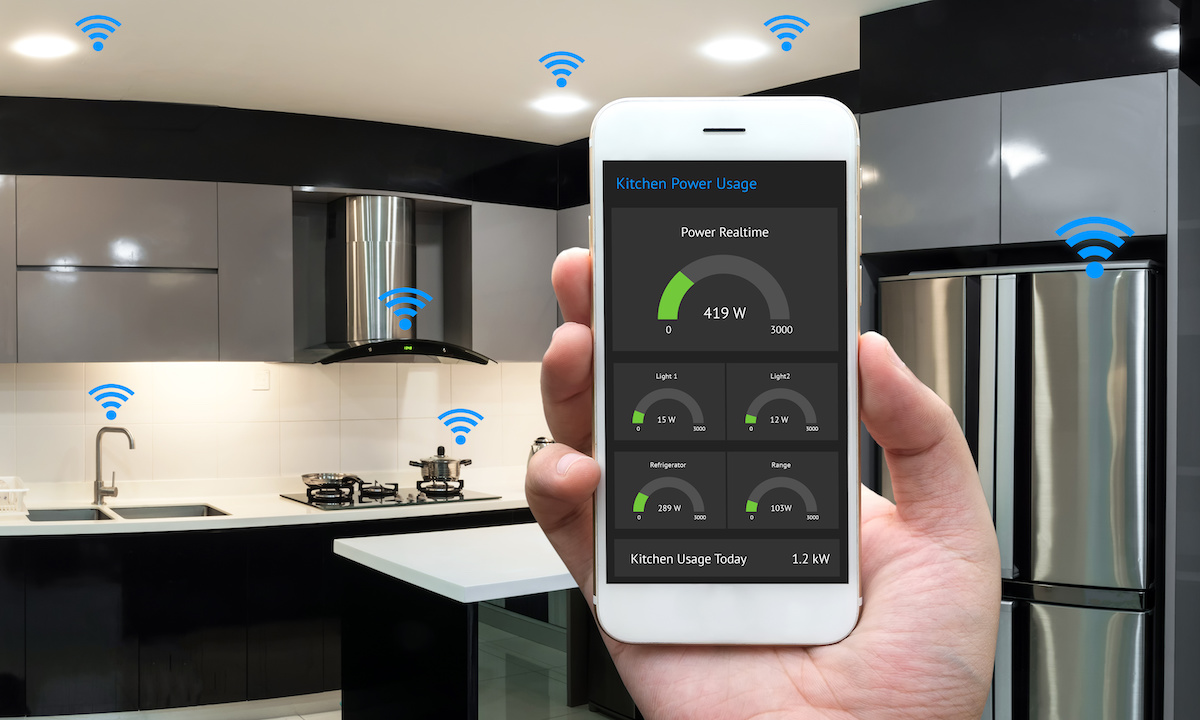
The Role of Regulations and Standards
As appliance technology becomes more sophisticated, regulations and standards are essential to ensure:
- Safety
- Energy efficiency
- Data privacy
Governments and industry bodies play a pivotal role in establishing and enforcing guidelines that protect consumers and maintain a level playing field for manufacturers. Regulations related to safety certifications, energy efficiency labels, and data protection will likely evolve in tandem with the rapid advancement of appliance technology.
Overcoming Barriers to Adoption
While the benefits of new appliance technology are clear, there are several barriers that need to be overcome for widespread adoption:
- Cost Considerations: Many advanced appliances come with a higher price tag, which can deter some consumers. However, as technology matures and becomes more commonplace, prices are likely to decrease, making these innovations more accessible.
- Consumer Education: A lack of awareness and understanding about the capabilities and benefits of new appliances can hinder adoption. Educating consumers about these technologies and their potential impact on daily life is crucial.
- Obsolescence Concerns: Some consumers may be wary of investing in new technology due to concerns about rapid obsolescence. Manufacturers should focus on designing appliances with modular components or upgradable software to extend their lifespan and value.
- Reliable Support and Warranties: With more complex technology, reliable customer support and warranties become essential. Manufacturers need to offer effective support channels and comprehensive warranties to instill confidence in consumers.
Stay in the Know about Changes in Appliance Technology
The new age of appliance technology is reshaping the way we interact with our living spaces, promising convenience, efficiency, and sustainability. From smart appliances that seamlessly integrate into our daily routines to AI-driven devices that enhance functionality, the possibilities are vast.
However, as we embrace these advancements, it’s crucial to balance innovation with privacy protection, ethical considerations, and the needs of diverse user demographics.
As we look ahead, the appliance landscape will continue to evolve, promising a future where technology seamlessly enhances our everyday lives. If you’re in the market for new appliances, make sure you stay up-to-date on all of the technology making an impact. Contact our team at Atlanta Appliance Services for some of the best appliance advice and repair services in the Atlanta area!

